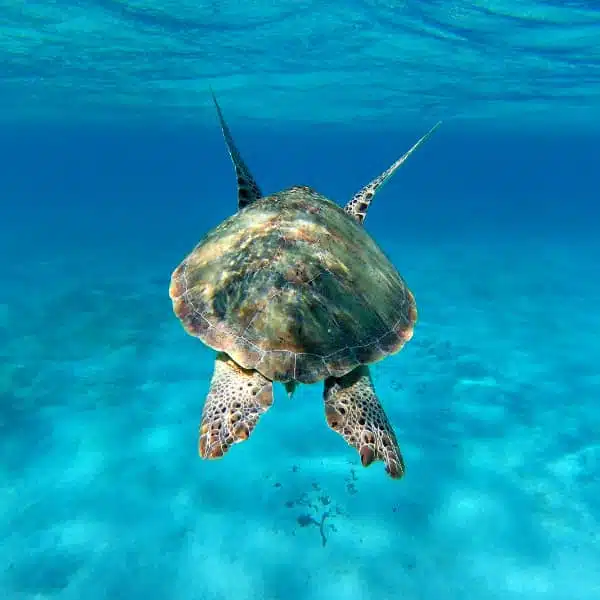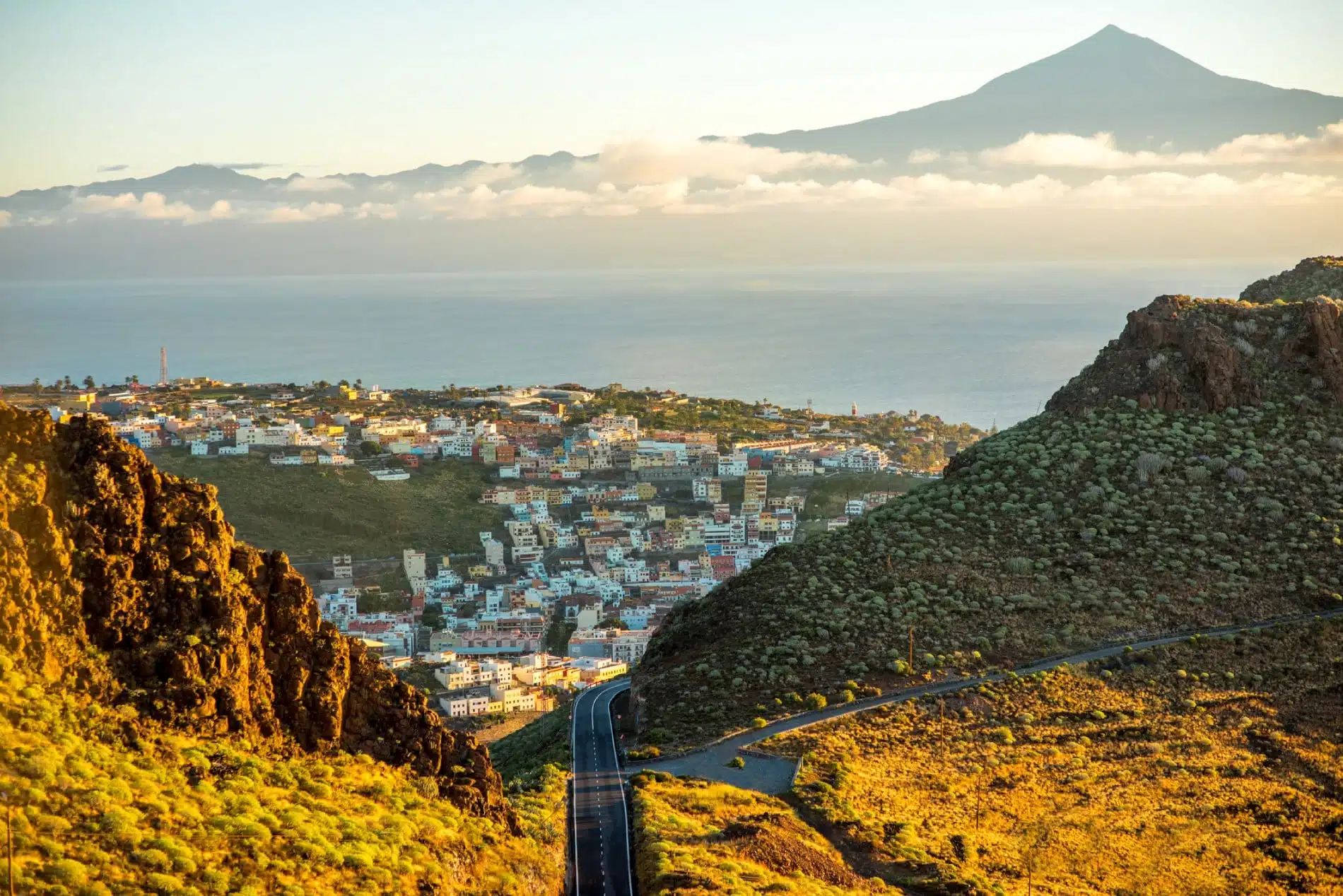The smallest Canary Islands
In the shadow of La Palma, Tenerife, Gran Canaria, Lanzarote and Fuerteventura lie three lesser-known Canary Islands: La Gomera, El Hierro and La Graciosa. Small, sparsely populated and even more isolated, they are the Three Graces of the Spanish archipelago.
La Gomera: the green pearl
La Gomera is nicknamed “the green island of the Canaries”, but its greenery is hidden, preserved like a precious emerald in the heart of the island: go hiking through the laurel forest (laurisilva) in the Garajonay National Park, a UNESCO world heritage site. Walk along paths sometimes shrouded in a mysterious mist, among moss-covered trunks and thick ferns. As you go down towards the west coast, experience the exoticism of Valle Gran Rey, a valley lined with palm trees and groves punctuated by whitewashed houses clinging to the hill overlooking black sand beaches.
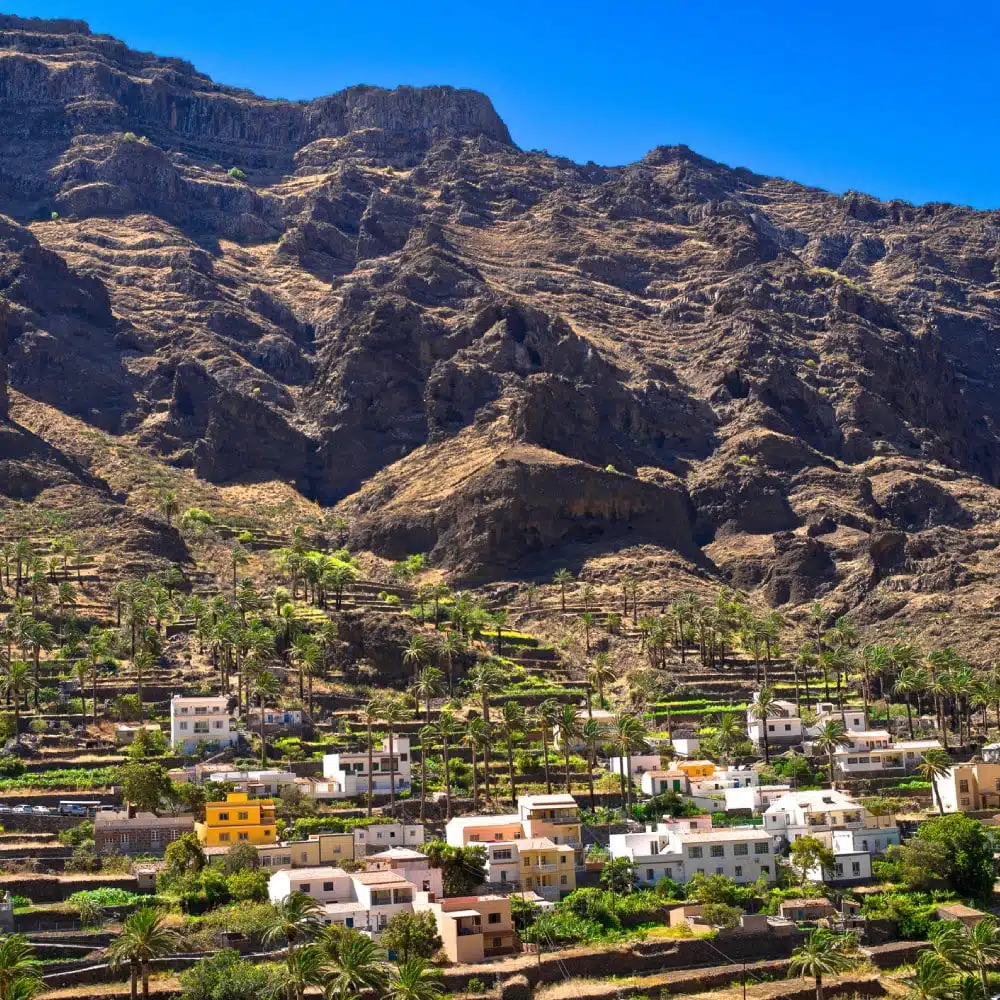
Silbo Gomero: the whistled language of La Gomera
Once upon a time, the island was inhabited by the Guanches. These indigenous inhabitants of the Canary Islands of Berber origin used a whistled version of their language – el silbo – to communicate between valleys. Today, Silbo Gomero is adapted to the Castilian Spanish spoken in La Gomera and practised by more than 22,000 inhabitants. Taught in schools since 1999, it has become a symbol of cohesion and an expression of Gomeran popular culture. This precious treasure has been listed by UNESCO as Intangible Cultural Heritage since 2009.
El Hierro: the iron island
Explore the treasures of this UNESCO Biosphere Reserve. Take a dip in El Hierro’s 100% natural swimming pools rather than at its few beaches. The sea rushes into these cooled lava cavities, making low tide the perfect time to dive in! These ideal swimming spots include El Tamaduste, La Caleta, La Maceta and El Charco Azul, on the side of the fertile El Golfo valley. El Golfo is an impressive natural amphitheatre. The Mirador de Jinama offers a particularly impressive panoramic view. And if you want to stretch your legs, climb to the top of the Pico de Malpaso, a peak overlooking the valley – and the entire island! – at an altitude of 1,500 m. The long but easy hike follows a pleasant path of ridges and pines.
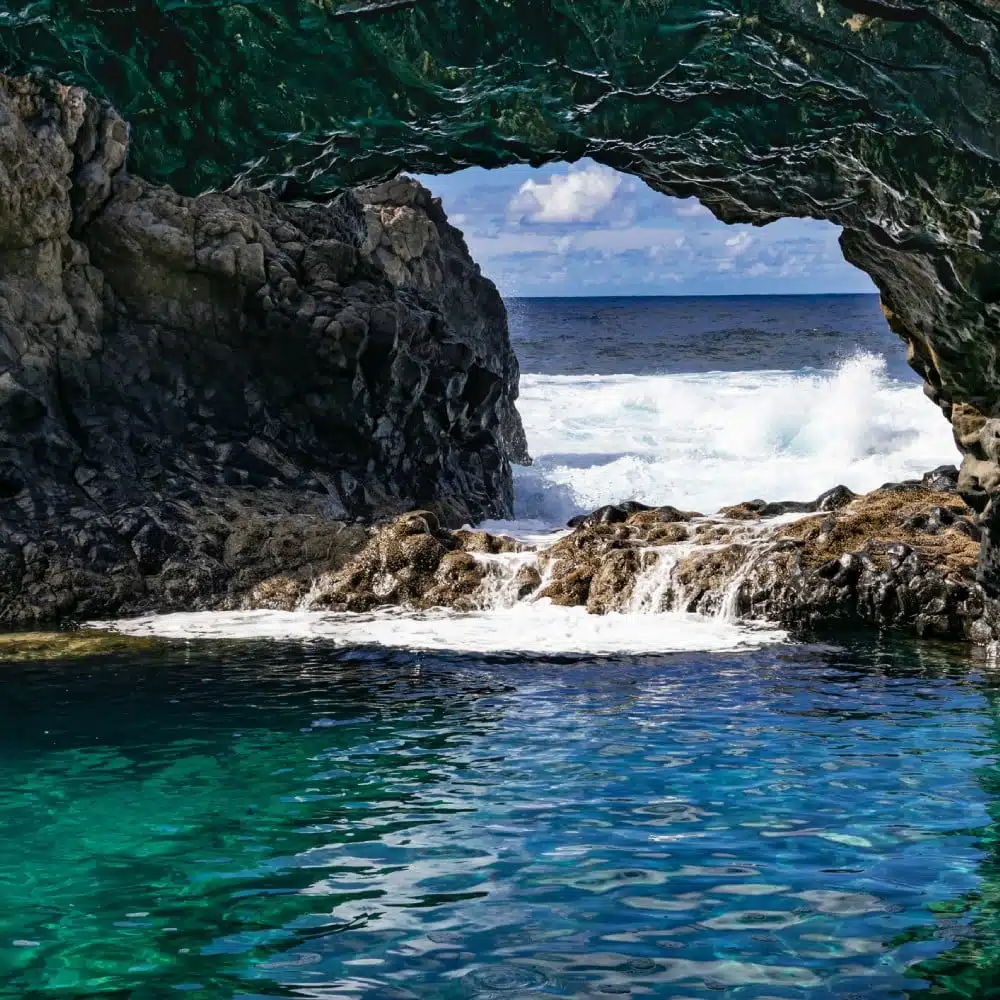
El Hierro: the island of the fountain tree
The “fountain” or “rain” tree was called Garoé by the pre-colonial Bimbache Guanche people. The Spanish called it the Holy Tree. Engulfed by the forest of clouds on the high ground, it collected water from the mist on its leaves. This unique source of water allowed the Guanches to overcome droughts. Revered by the indigenous peoples, it was respected and celebrated by the Spanish until 1604, when a hurricane is thought to have torn it down. Another Garoé was planted in its place in 1947, like a totem of the roots and history of El Hierro. The tree also features on its coat of arms…
La Graciosa: a remote island
La Graciosa is a preserved little slice of paradise, only a handful of nautical miles from the north shore of Lanzarote. Truth be told, most people don’t plan to visit La Graciosa, but anyone who does is charmed… The island starts to weave its magic as soon as you land in the small village of Caleta del Sebo, which has the feel of a North African outpost. The sea almost laps against the walls of the houses. And you won’t find asphalt streets but sand.
Caleta del Sebo will be the starting point for exploring this astonishing sliver of land with no paved roads. To explore it, you must follow a few sandy trails. Enjoy idyllic beaches, probably La Graciosa’s best asset. Isolated and solitary, they are said to be the most beautiful in the archipelago. Just take a look at the Playa de las Conchas, Playa Francesa and its neighbour Playa de la Cocina, where you’ll be in for a surprise as instead of amazing white sand, the beach is covered with black volcanic sand!
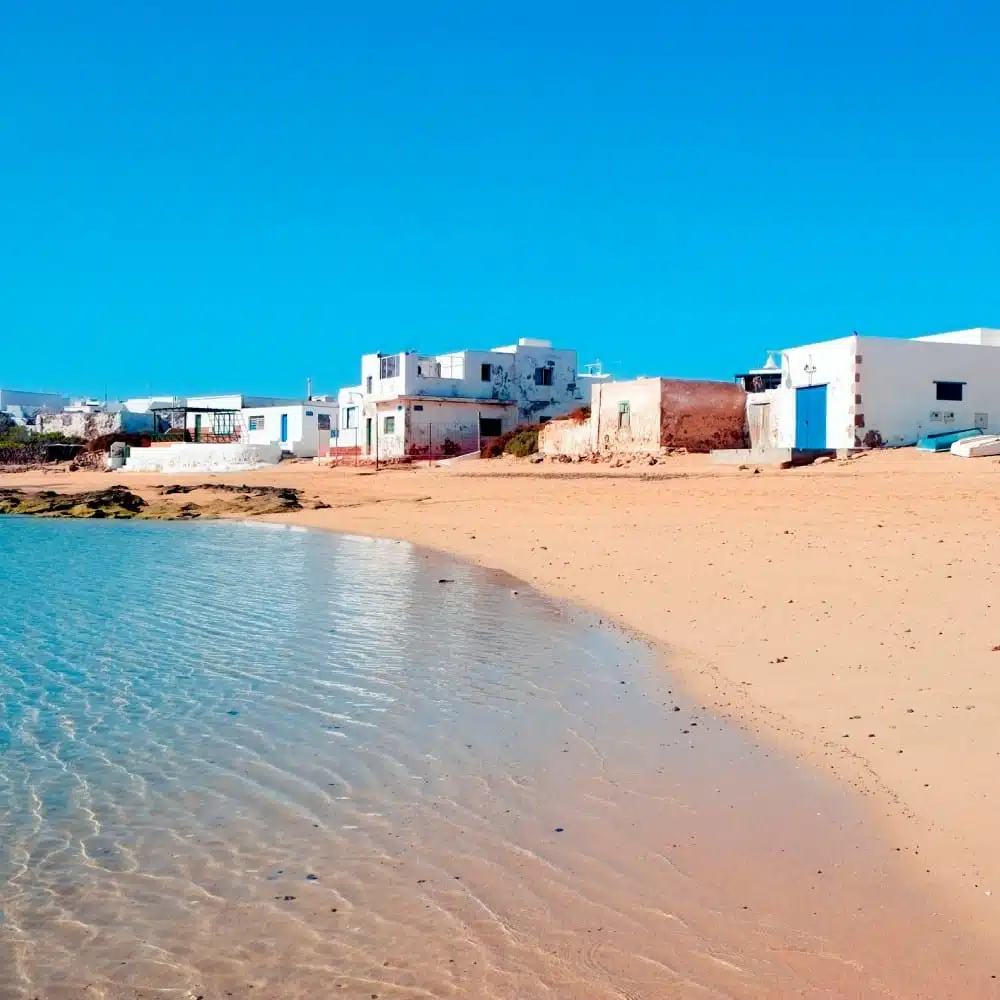
Photos credits : © iStock
